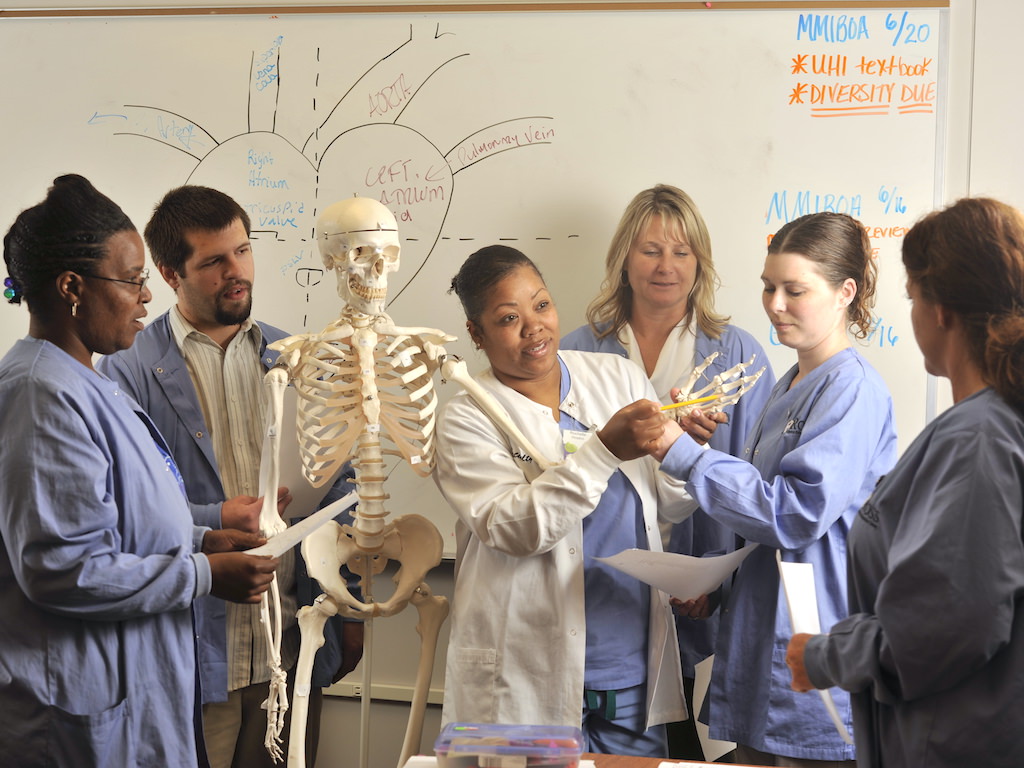 If you are seriously interested in a medical assisting career, or really any career for that matter, it is essential that you learn the common terms and phrases for the job! This is especially important as a medical assistant, since the correct and efficient care of your patients depends at least in part on your knowledge of applicable medical terminology.
If you are seriously interested in a medical assisting career, or really any career for that matter, it is essential that you learn the common terms and phrases for the job! This is especially important as a medical assistant, since the correct and efficient care of your patients depends at least in part on your knowledge of applicable medical terminology.
As you learn the skills of the medical assisting career, one of the most important ones you will be instructed on is medical terms and phrases. Not only do you need to know what they are and how to pronounce them, you have to actually know quickly and with accuracy what they mean!
Medical assistants are typically working directly with patients, talking through their medical histories, taking their vitals, and walking them through procedures. It will instill confidence and increase comfort for a patient if you as one of their healthcare professionals are comfortable with medical terms!
Also, did you know that the certification tests for medical assisting have whole sections that focus on medical terminology? It’s important now and in the future to get it down, and we came up with a few quick tips to help!
Break it Down
Just because it sounds like a foreign language doesn’t mean that memorizing medical terminology has to be difficult. Actually, it can get much easier once you begin to break down the words into their parts.
Most medical terms contain a prefix, root, and suffix, or at least a couple of these parts. Prefixes come before the root and suffixes come after the root. These prefixes, roots, and suffixes actually are from a foreign language! (For more on the Greek and Latin roots of medical terms, read this article we wrote about learning and remembering terminology.)
Once you learn each of the pieces, it will become very simple to begin to put them together like a puzzle, and soon you will be able to figure out what an unfamiliar word means at a glance! Start by learning some common prefixes, roots, and suffixes, and you will be well on your way!
Surgical Terms
Like other medical terms, surgical terminology also uses prefixes, roots, and suffixes. For example, most surgical names include the suffix “-ectomy” or “-ostomy.” The suffix “-ectomy” like in a tonsillectomy, means to remove.
So, a tonsillectomy is a procedure in which the tonsils are removed. Similarly, the ending “-ostomy” means to make a hole, so the word tracheostomy means to make a hole in the trachea.
Typically the surgical term also includes the technical anatomical label of the body part, so make sure to pay attention in your anatomy and physiology classes during your medical assistant training program.
Medical Specialties
Different doctors and departments usually get their titles from the parts of the body or the systems that they specialize in.
Sometimes the Latin roots can help with this process as you figure out what their specialities are. For example, the root “cardio” refers to the heart, so a cardiologist is a heart doctor. Similarly, any title with “gastro” in it will be related to the stomach.
There will be some rules that don’t apply here, but many you can begin to figure out using the roots for the areas of the body the physician specializes in.
Diagnostic Terms
Unfortunately, this is an area that doesn’t follow many of the same rules. The body part being examined will follow the rules, but often the name of the actual procedure will be called something that just has to be memorized.
However, many diagnostic procedures do use the suffix “-oscopy.” If you notice, it looks like the word “scope,” and that’s exactly what it means! Basically, a procedure that ends in “-oscopy” involves a camera or some sort of other radiology procedure to look inside the body. So, a colonoscopy takes a look inside the colon.
Abbreviations
As a medical assistant, things may move quickly, and you will begin to see abbreviations used frequently. Many healthcare professionals use abbreviated titles like RN, registered nurse, CNA, certified nursing assistant, and MA, medical assistant.
Other abbreviations will be more difficult to figure out. This is where it becomes important to work hard to memorize that medical terminology in class and to always be willing to ask questions and keep learning!
Interested in Becoming a Medical Assistant?
We would love to give you instruction on the medical terminology you’ll need in the medical assisting field as well as much more! Visit our Ross Medical Education Center Medical Assistant program page today to find out more!
